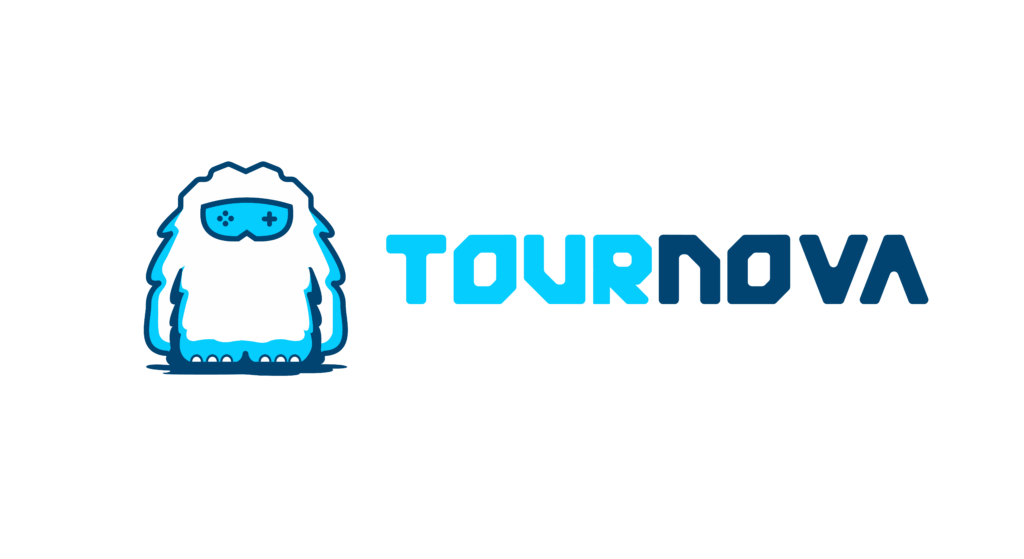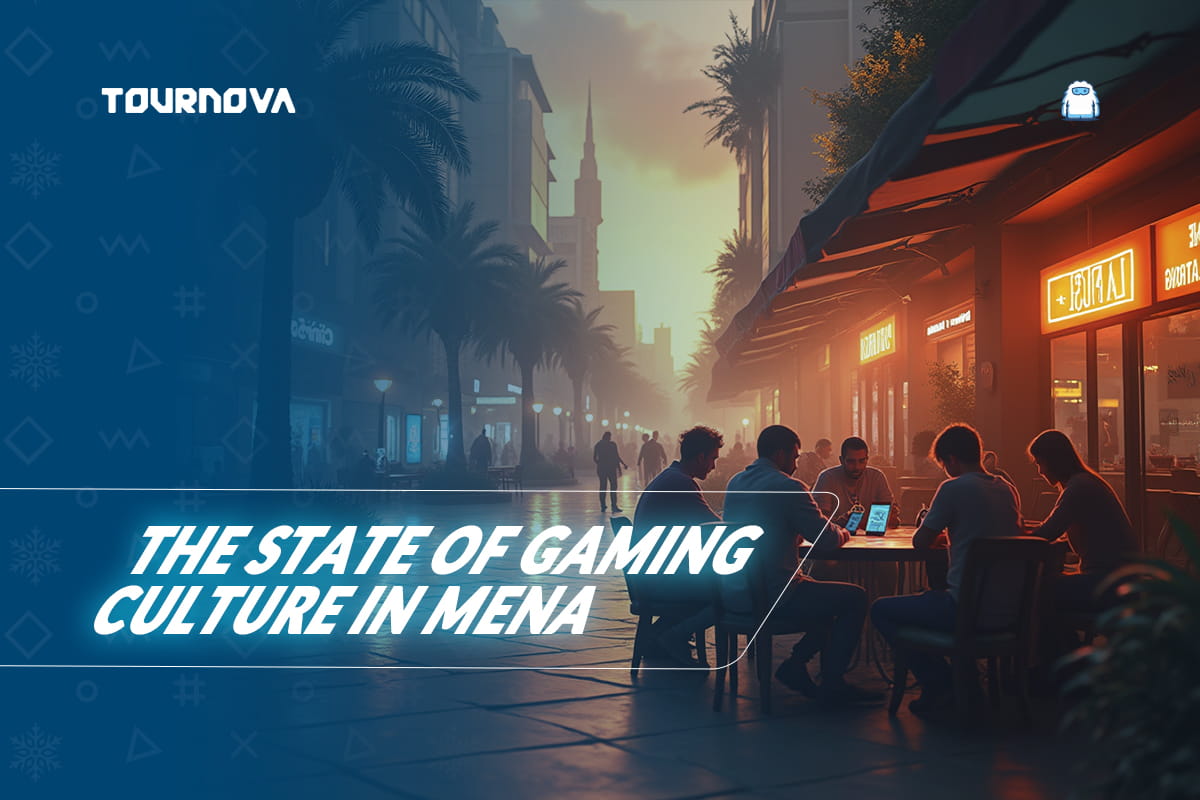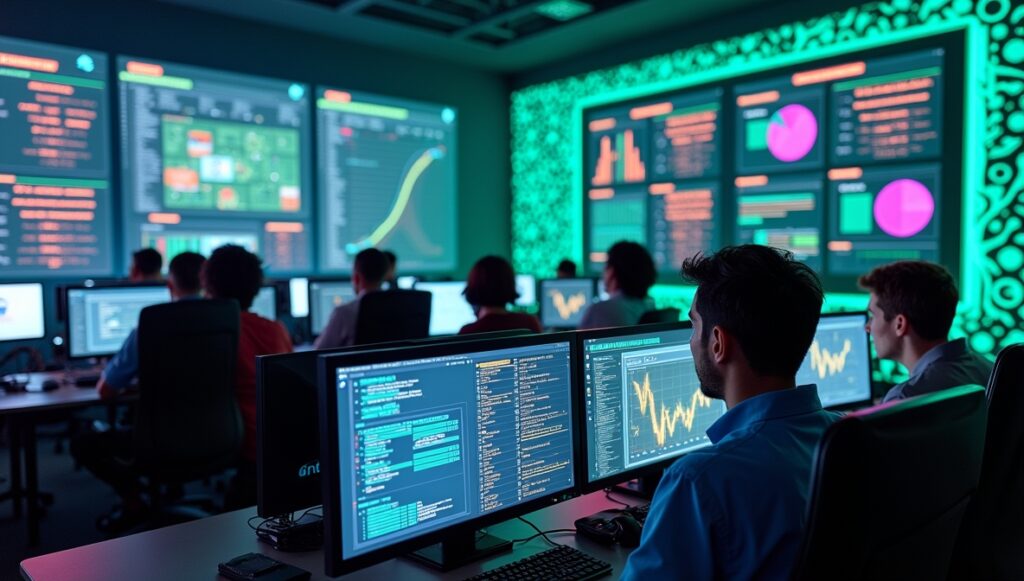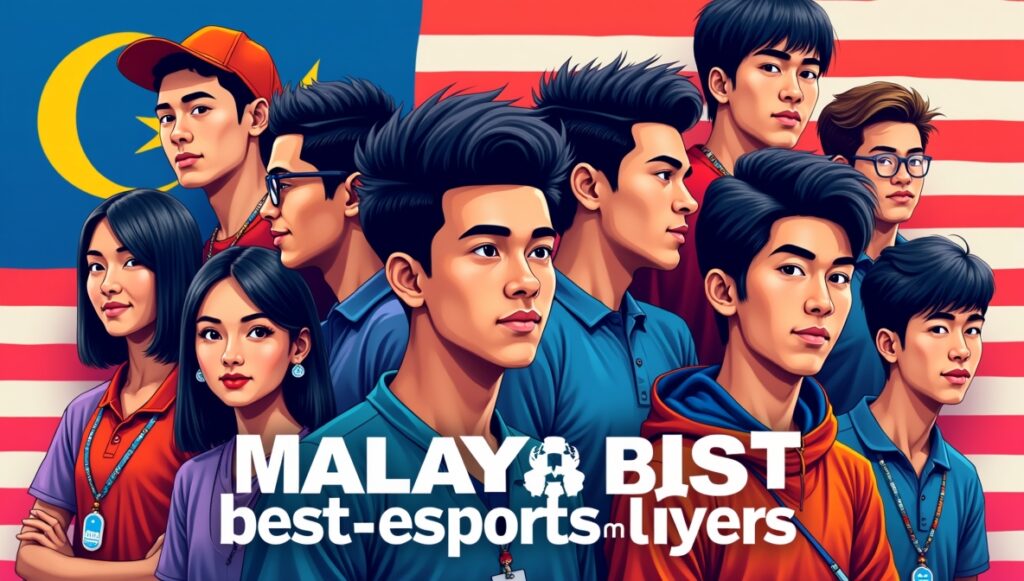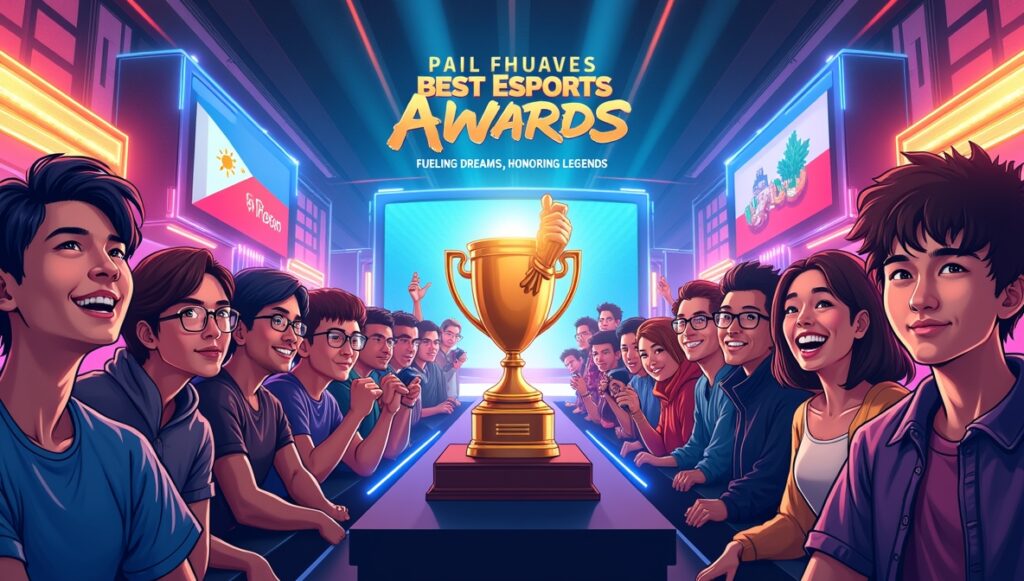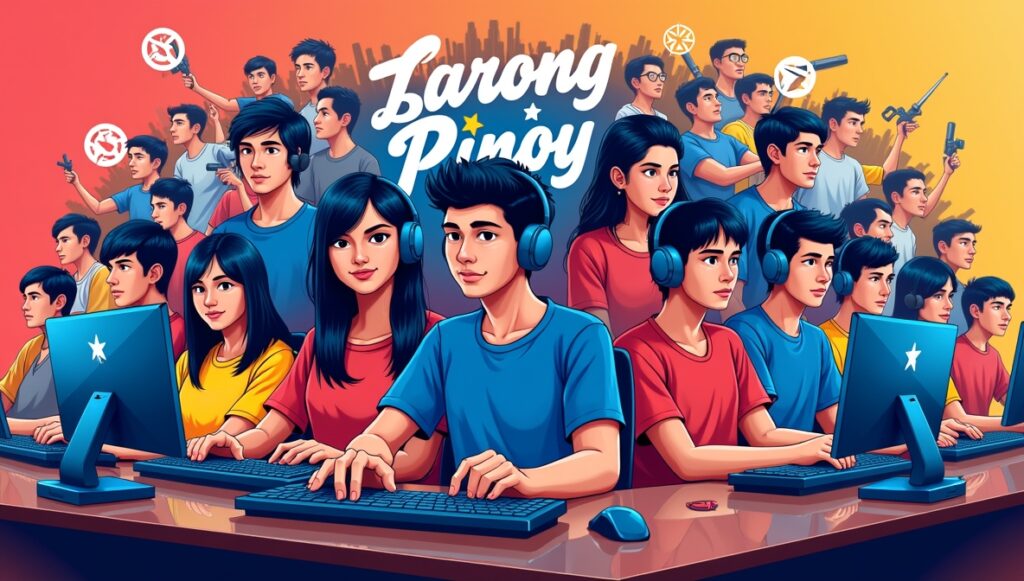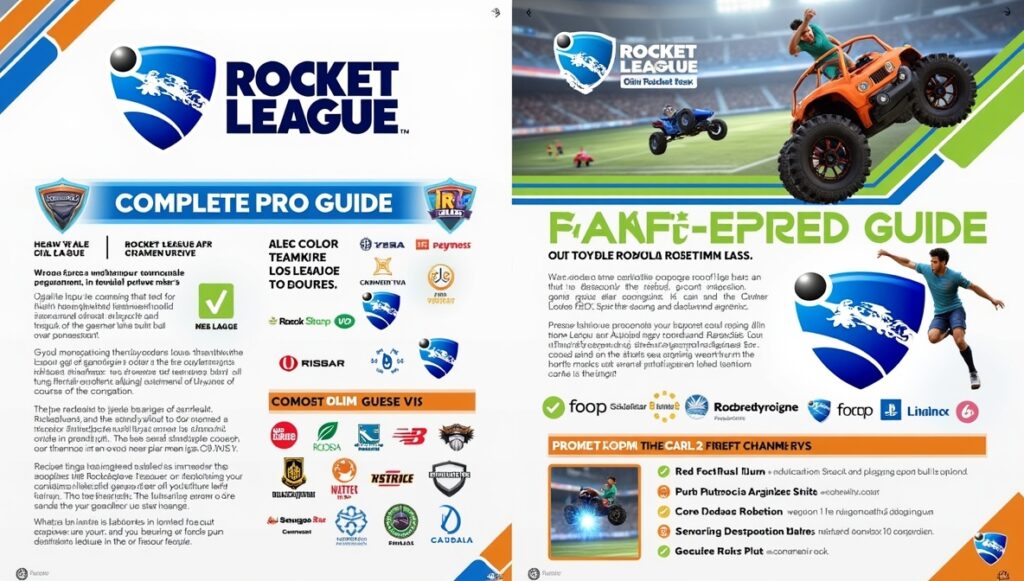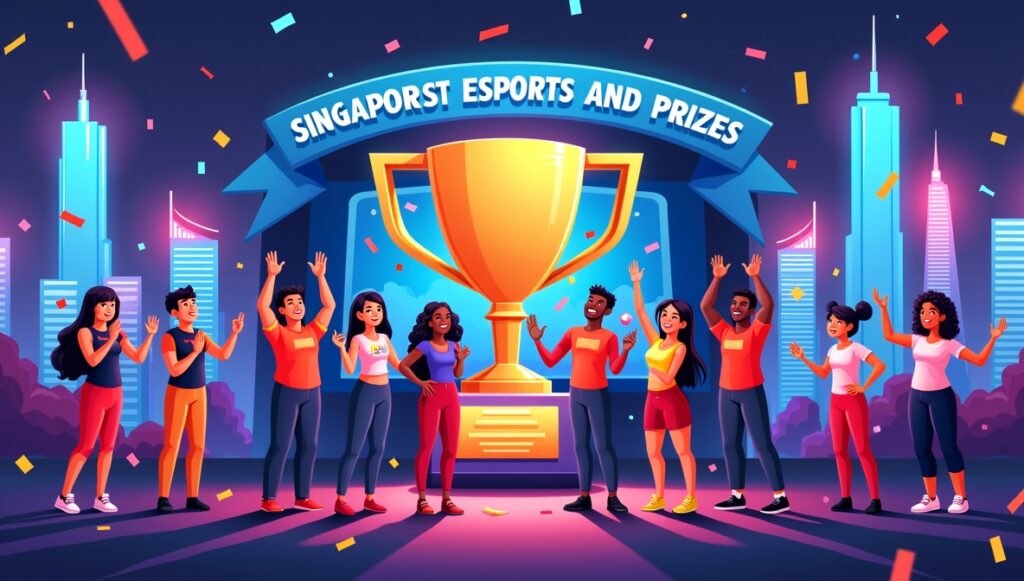Picture this: you’re strolling through a lively café in Cairo, a bustling mall in Dubai, or even a cozy park in Amman. Notice the group of friends huddled tightly around their phones or the intense click-clack of keys from someone glued to their laptop? That’s the unmistakable pulse of gaming culture in MENA (Middle East and North Africa); an ever-expanding phenomenon that’s changing how people socialize, compete, and even express themselves. Gaming in MENA has grown far beyond a casual pastime. It’s connected communities, birthed esports champions, and fostered creativity in unprecedented ways. From PUBG Mobile competitions in your neighborhood café to massive esports tournaments that resemble FIFA World Cup events, it feels like we are living through a cultural transformation. But where exactly does this vibrancy come from? How did games become a cornerstone of modern life for millions? Let’s delve into the fascinating gaming culture in MENA, unravel its driving forces, and uncover what makes it oh-so-special.
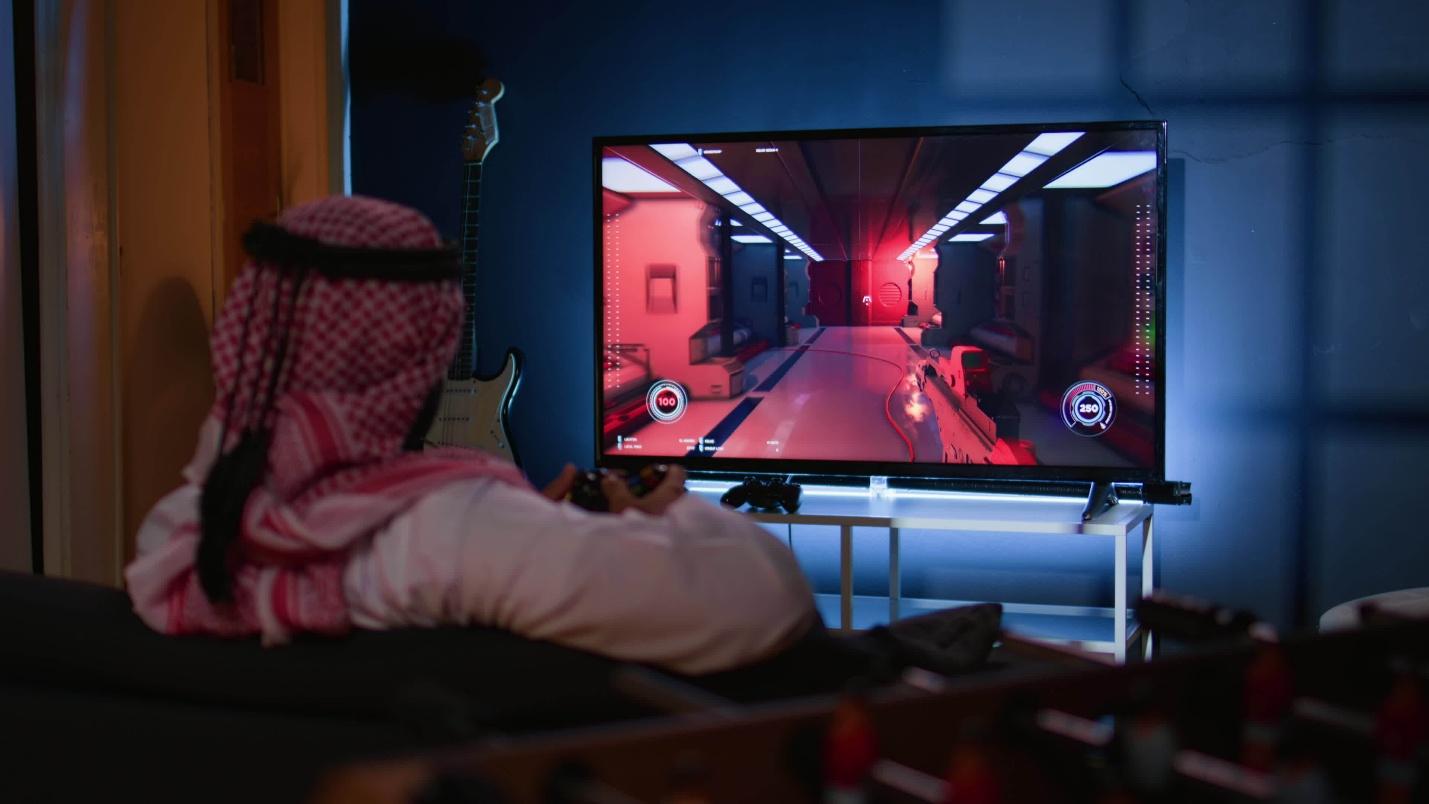
- Over 60% of the MENA population is under 30, driving game demand.
Gaming Culture in MENA: A Global Game-Changer
It’s not just the insane stats that prove the MENA region is the next big thing in gaming, though, trust us, they’re impressive. In 2024 alone, the MENA gaming market raked in $15.25 billion in revenue. If you think that sounds like a lot, hold on; it’s projected to hit an eye-watering $22.28 billion by 2029, growing at a mind-blowing pace year after year.
But it’s not just the money that defines this culture. It’s the people. Over 60% of MENA’s population is under 30, and many of them grew up playing mobile games, exploring game-inspired adventures, or cheering on their favorite esports stars. Gaming, for them, isn’t just entertainment; it’s a way of life.
And herein lies the magic of gaming trends in MENA: they’re fast, localized, and deeply rooted in the communities they serve. What’s that saying? “When the world goes mobile, MENA makes it a lifestyle.”
What Fuels Gaming Culture in MENA?
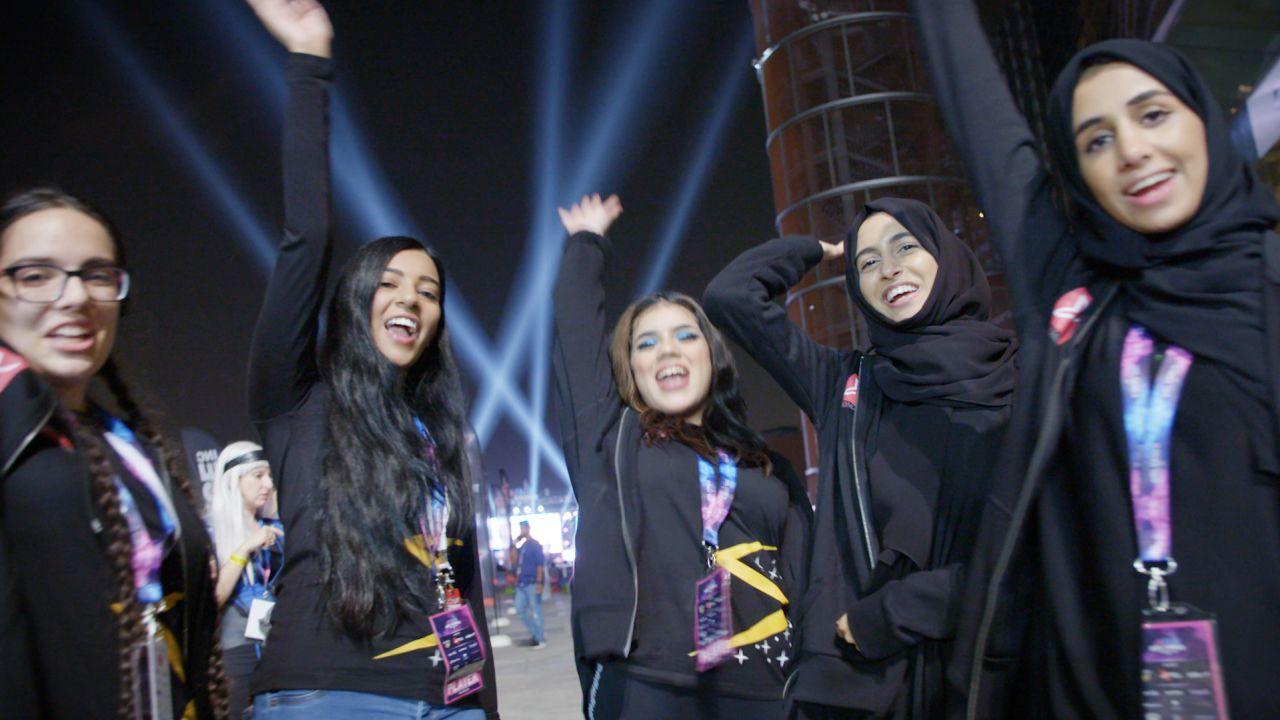
- Saudi Arabia’s Vision 2030 includes major investment in gaming.
Innovation and passion power the MENA gaming community. It’s an evolving ecosystem inspired by cultural nuances, rapid tech advancements, and the inclusivity gaming offers.
1. Seamless Connectivity Through Advancing Technology
It’s no exaggeration to say the region went from “buffering videos” to streaming esports in HD faster than expected. With mobile gaming taking center stage, 5G rollout, and stronger broadband speeds, tech has bridged gaps across demographics and has impacted the gaming culture in MENA. Suddenly, it doesn’t matter if you’re in a high-tech gaming café in Dubai or sitting on your apartment balcony in Marrakech; with just a phone in hand, the games begin.
Mobile games like PUBG Mobile, Free Fire, and Call of Duty Mobile dominate the scene. These games are accessible, competitive, and social. Have you ever seen a group of friends in a park shrieking and strategizing as they duke it out in PUBG? We sure have; it’s gaming as an extension of social life.
2. Social Media’s Role in the Phenomenon
Gaming, especially in MENA, isn’t an isolated experience; it’s a shared one. Platforms like Twitch, YouTube, and TikTok have turned gamers into storytellers and influencers, allowing them to showcase gameplay, share tips, and create trends.
Take gaming heroes like MortaL or DesertFuryYT, whose commentaries aren’t just about gameplay; they’re emotional, relatable journeys shared with their thousands (sometimes millions) of followers. Social media here isn’t just a way to broadcast gaming; it’s the heartbeat that amplifies gaming trends in MENA to global audiences.
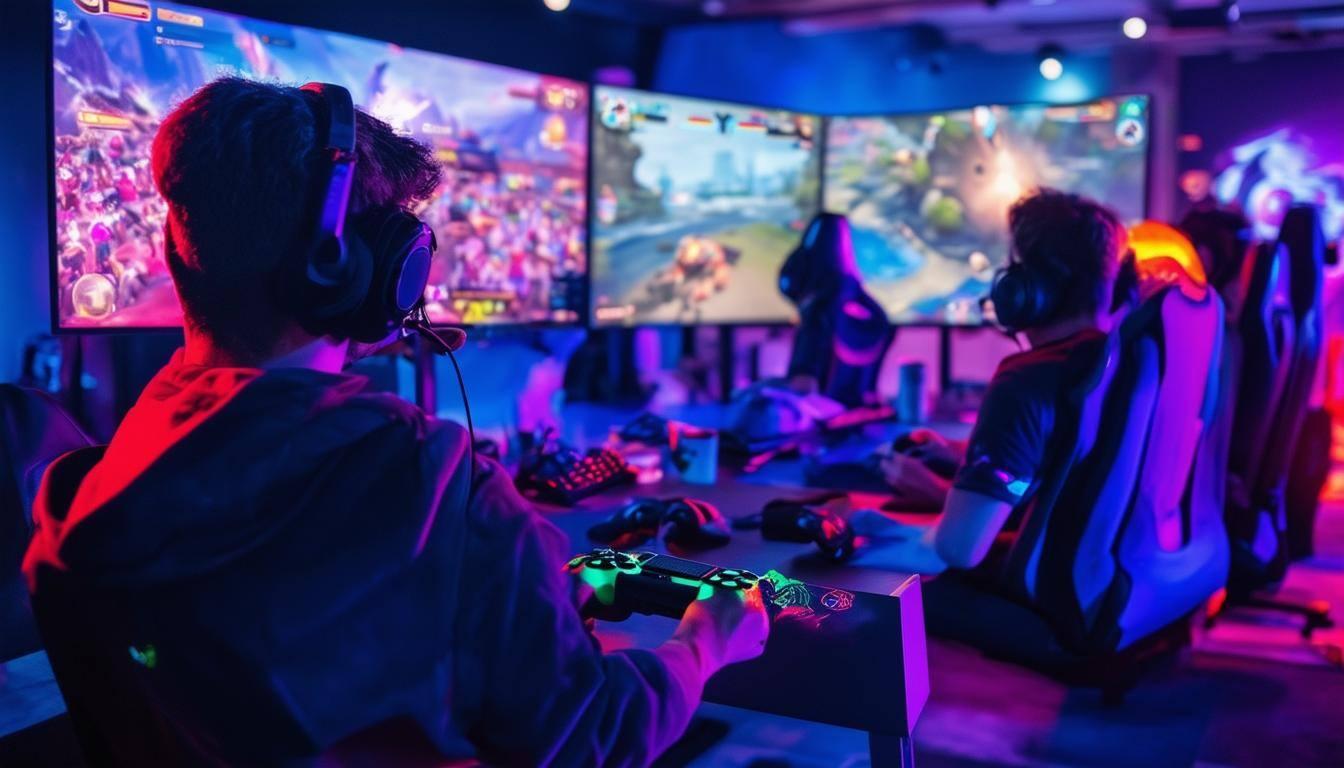
- Mobile gaming leads, followed by console and PC gaming.
What Games and Platforms Dominate in MENA?
At its core, gaming culture in MENA reflects the region’s need for connection, entertainment, and competition. But the how and what of gaming in MENA adds personality to its culture.
1. Mobile Gaming: The MVP of Platforms
Let’s not beat around the bush: mobile gaming is the undisputed king of MENA. Affordable smartphones and wallet-friendly data plans have made this platform accessible to nearly everyone. Games like PUBG Mobile, Call of Duty Mobile, and even Clash Royale have become more than games; they’re cultural staples.
For us, a perfect evening in Dubai looks like this: hitting up a shisha café, sipping mint tea, and watching a friend clutch the final circle in PUBG Mobile. The game’s simple yet intense mechanics make it the natural choice for gamers on the go.
2. Console and PC Gaming: Cultivating Competitors
While mobile gaming dominates, console and PC gaming have cultivated their own fiercely loyal following. Titles like FIFA, Fortnite, and League of Legends have fans across the region. Not to mention the rise of competitive titles like Valorant for players seeking the adrenaline-fueled esports spotlight.
Gaming lounges and events like the Riyadh Season Esports Cup breathe life into this scene, giving local players a chance to build communities, compete internationally, and, honestly, just show off their skills. These have had a drastic effect on the gaming culture in MENA.
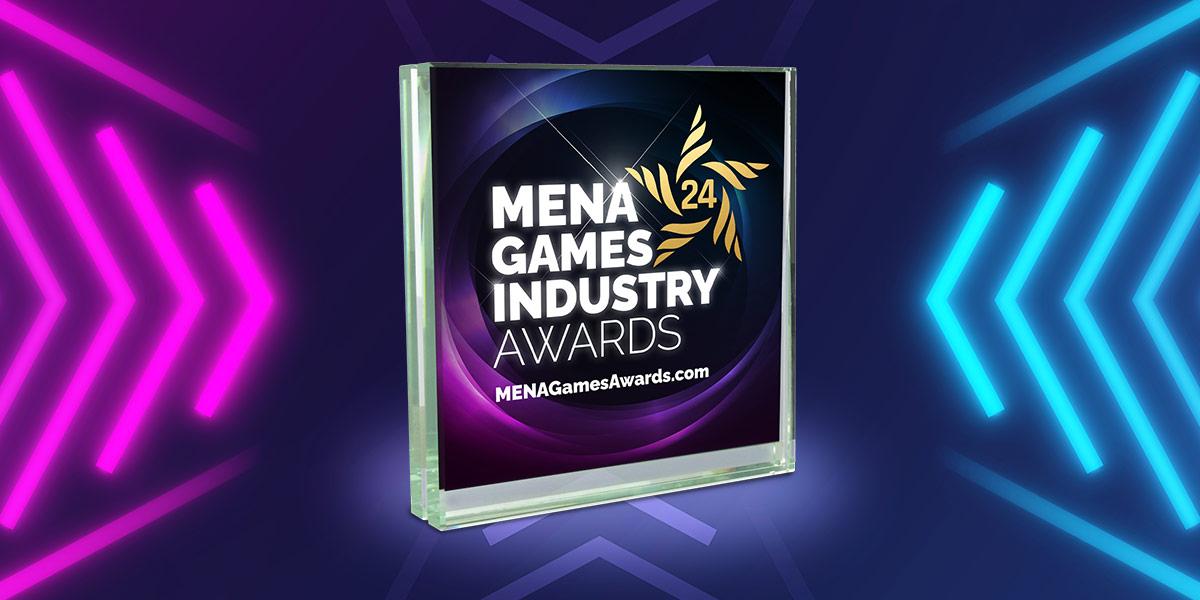
- The awards honor achievements across 14 categories, including Best Developer, Best Publisher, and Best Arabic Localization.
Esports in MENA: A Thriving Competitive Culture
Esports in MENA isn’t just a trend; it’s exploding. Competitive gaming has surged into the mainstream, with governments positioning esports as a serious industry. Saudi Arabia’s Vision 2030 is a prime example: millions of dollars invested to make the country a global esports hub, including state-of-the-art arenas and local tournaments that feel like rockstar concerts.
You’ll find games like League of Legends, Dota 2, and PUBG dominate esports tournaments, drawing massive crowds and international sponsorships. And the players? They’re not just competing; they’re inspiring younger generations to dream big with careers in gaming.
Cultural Values Shape Gaming in MENA
Gaming in MENA reflects the region’s unique mix of tradition and modernity. The demand for localized content, be it games with Arabic menus and voice-overs or culturally inspired narratives, is proof that MENA gamers value seeing their identities reflected in the games they love.
Take Assassin’s Creed Origins, which took players on a journey through ancient Egyptian history. For many, it wasn’t just a game; it was a celebration of their heritage. Such games create an emotional bond that resonates deeply with players across the region.
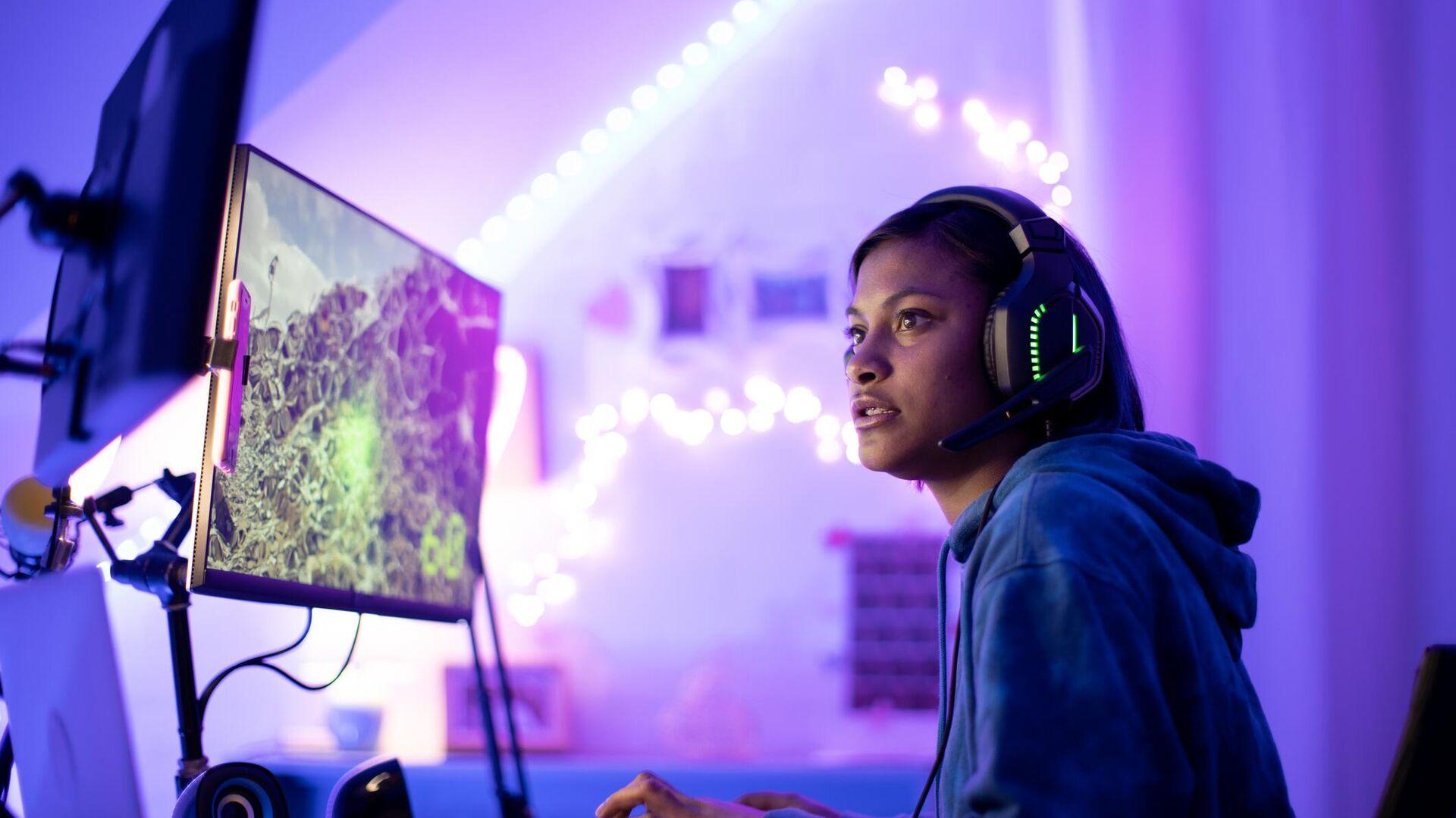
- Female gamers are gaining more visibility despite social barriers.
Challenges That Shape the Path Forward
No success is without its hurdles; the gaming culture in MENA faces its own set of challenges. Internet access, for one, remains uneven in rural areas, leaving some players with limited options. Regulation is another hurdle, as developers must consider strict content requirements that sometimes delay game releases in the region.
Despite these challenges, the resilience of the MENA gaming community shines through. Local startups, gaming cafes, and international investments are finding ways to overcome these barriers, ensuring that gaming reaches every player, no matter their location or background.
Looking Ahead: The Exciting Future of Gaming in MENA
What lies ahead for gaming culture in MENA? The future couldn’t be brighter. With advancements in virtual reality (VR) and augmented reality (AR), gamers in the region could soon explore incredibly immersive worlds, from ancient Petra to futuristic Cairo.
Additionally, the rise of indie developers crafting games inspired by local folklore and traditions shows that MENA’s contributions to the global gaming narrative are only beginning. Combine that with the growing spotlight on esports, and you’ve got a thriving gaming ecosystem with unlimited potential.

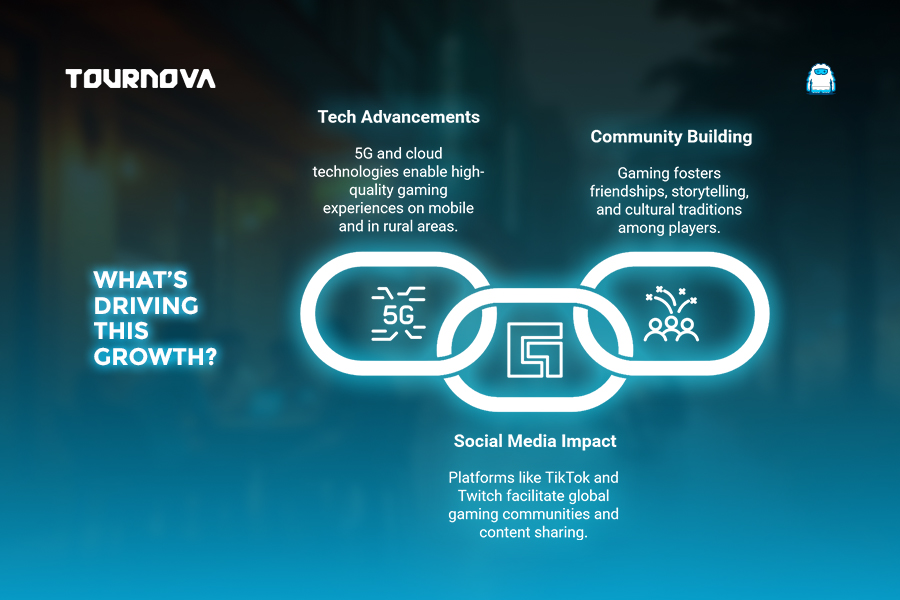
Tournova: Amplifying MENA’s Thriving Gaming Culture
Drawing parallels with the deep-rooted connection and communal spirit seen in the gaming culture in MENA, Tournova offers tools that resonate with the region’s players and organizers. Its Telegram-based mini-app simplifies tournament participation for casual and hyper-casual gamers, reflecting the accessibility and social nature of mobile gaming; the undisputed champion of MENA’s gaming scene. By hosting free and cash tournaments, Tournova creates opportunities for players to compete, interact, and earn tokens, while aligning perfectly with the spontaneous and community-driven gaming culture witnessed across cafes and living rooms in the region.
On Discord, Tournova elevates competitive gaming and esports, leveraging Web 3 technology to automate tournament workflows like player matching, bracket management, and prize distribution. These seamless processes reflect the growing esports professionalism observed in MENA, especially as governments and cultural initiatives continue investing in esports infrastructure. Through its innovative token economy, Tournova transforms gaming into a rewarding experience, reinforcing the region’s gaming habits of connection, competition, and collaboration, all while fostering long-term engagement within its ecosystem.

- Games like PUBG, FIFA, and Fortnite are wildly popular in MENA.
Why Gaming Culture in MENA Matters
The growth of the gaming culture in MENA has done something truly remarkable; it’s turned pixels into connections, virtual battles into real friendships, and competitive matches into career stepping stones. Whether it’s the thrill of landing a kill in Call of Duty, leading an esports team to victory, or simply enjoying your favorite game while bonding with friends, MENA has proven that gaming is more than entertainment. It’s culture, connection, and, most importantly, community.
Read about everything eSports all over the world via our Global Esports features on Tournova.
FAQs
1. How are women contributing to MENA’s gaming culture?
Women across MENA are becoming a key part of the gaming community, not just as players but as influencers, developers, and competitors in esports tournaments.
2. Are there any Arabic-developed games making waves in MENA?
Yes! Indie developers in the UAE and Egypt are creating games like Unearthed: Trail of Ibn Battuta, with stories and aesthetics tailored to the region’s tastes.
3. Does gaming help foster skills or careers in MENA?
Absolutely. Esports teaches teamwork, problem-solving, and creative thinking, while game streaming and development open up career paths that are only growing in demand.
4. What infrastructure changes are needed to support gaming in rural areas?
Expanding access to affordable, high-speed internet and improving cloud gaming services can help gamers in less-connected regions thrive.
